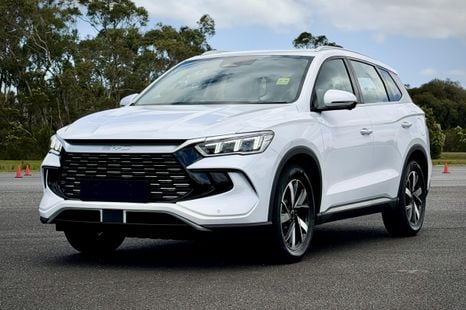

Ben Zachariah
2026 BYD Sealion 5 Essential review
5 Hours Ago

News Editor
You can charge your phone wirelessly, so why not your electric car?
Green Car Reports reports the upcoming Genesis GV60 will offer wireless charging capability.
The feature will reportedly be available only in Korean-market models, at least at first.
The option will be trialled in South Korea in the second half of next year and US wireless charging company WiTricity will supply the hardware.
Genesis says using the wireless charging feature will fully charge the GV60’s batteries in around six hours compared to ten hours when using a conventional wall charger.
WiTricity says its technology boasts 90 to 93 per cent efficiency and charges at rates of between 3.6 and 11kW.
The US company says this will make the GV60 the first production battery-electric vehicle with the technology, though the plug-in hybrid BMW 530e has offered this technology in some markets and some Chinese companies are expected to release EVs with wireless charging in 2022.
WiTricity’s technology uses magnetic resonance, allowing a current to flow through a magnetic field between the source and the receiver.
This would allow owners to simply drive onto a supported wireless charging pad without having to bother with a charge cord. The pad could be buried underneath, for example, the surface of a car park.
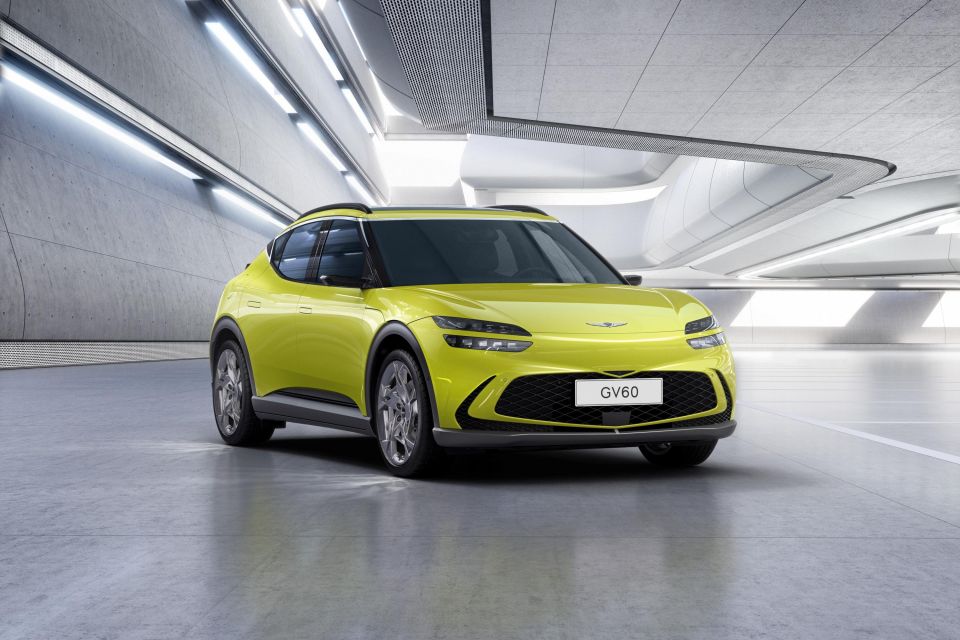
One hurdle for widespread wireless charging adoption is the lack of wireless charging infrastructure, though this could change as more vehicles introduce the technology and more businesses sign up to install charging pads.
The GV60 will arrive locally in the first half of 2022 and will be the brand’s first model on the new E-GMP architecture, also underpinning the Hyundai Ioniq 5 and Kia EV6.
Genesis says under its model name structure that the smaller the number, the greater the athleticism.
It therefore promises the GV60 will be the brand’s most athletic model yet.
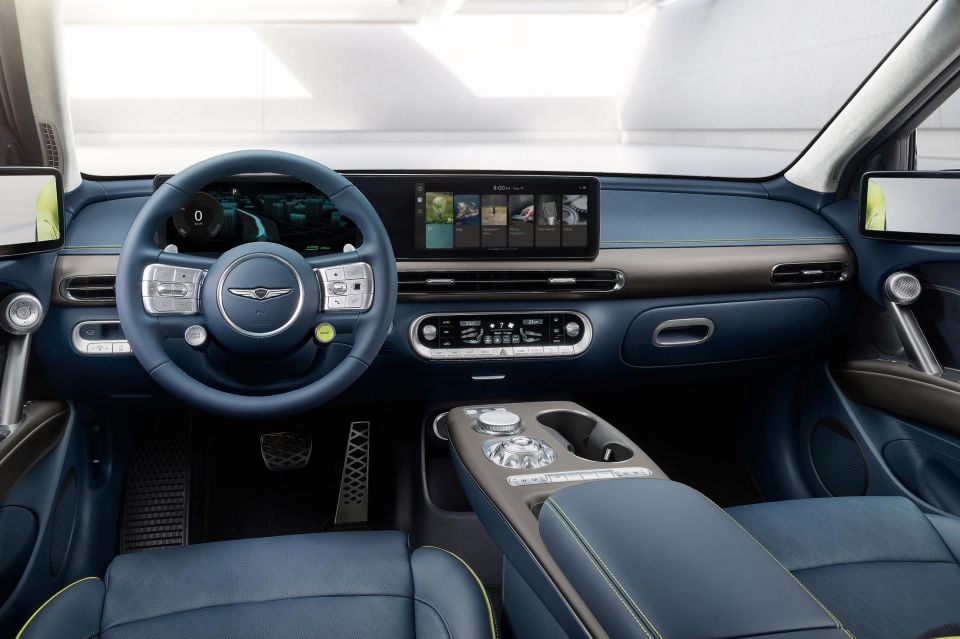
Genesis has yet to confirm technical specifications for the GV60, though it has revealed the interior and exterior design.
The related Ioniq 5 comes standard with a 58kWh battery pack and a single electric motor with 125kW of power and 350Nm of torque, good for an 8.5-second run to 100km/h.
The dual-motor all-wheel drive model ups those outputs to 173kW and 605Nm, and drops the 100km/h sprint to an i30 N-rivalling 6.1 seconds.
Opting for the longer-range 72.6kWh model gets you 160kW and 350Nm in two-wheel drive models, and a serious 225kW and 605Nm from the dual-motor setup. The latter can do 0-100km/h in 5.1 seconds.
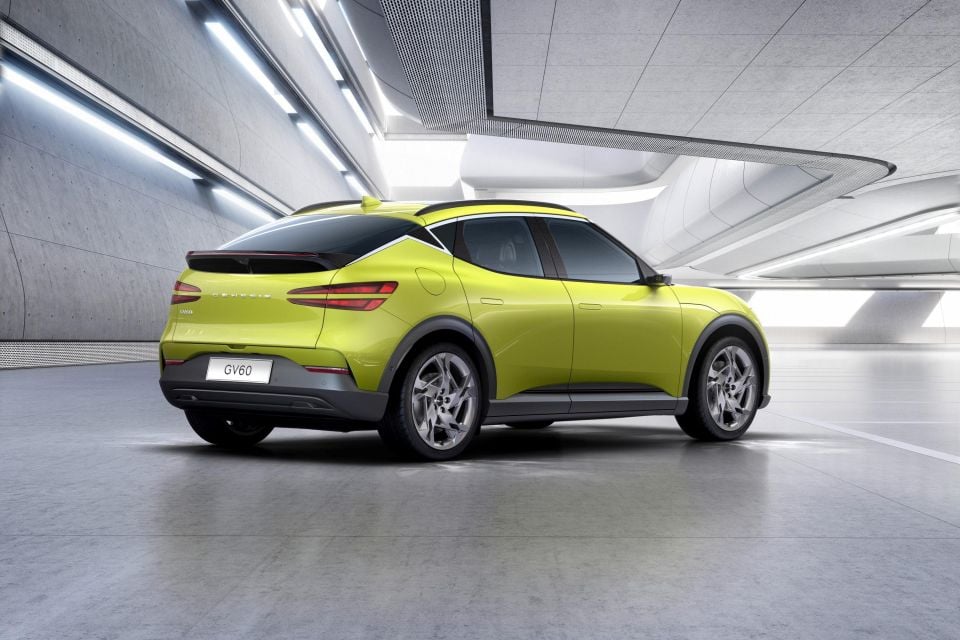
An even more powerful model can be found in the Kia EV6 line-up.
The flagship, all-wheel drive GT uses a 77.4kWh battery and a dual-motor all-wheel drive set up with 430kW of power, 740Nm of torque, and a 0-100km/h time of just 3.5 seconds.
Maximum range (in the long-range, single-motor Ioniq 5) is 480km on the WLTP test cycle, while the same configuration in the EV6 yields 510km.
The GV60 won’t be the only EV launching under the fledgling Genesis brand.
The company has confirmed an electric version of the G80 sedan, called the Electrified G80, will launch locally in the first quarter of 2022.
We’re also set to get an EV version of the GV70 in 2022.
Go deeper on the cars in our Showroom, compare your options, or see what a great deal looks like with help from our New Car Specialists.
William Stopford is an automotive journalist with a passion for mainstream cars, automotive history and overseas auto markets.


Ben Zachariah
5 Hours Ago
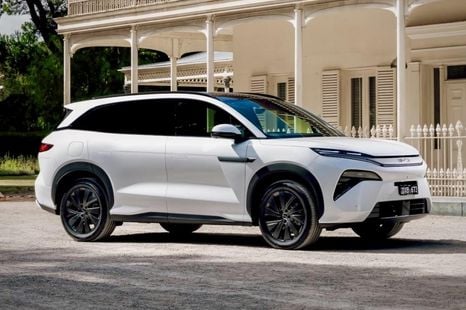

Ben Zachariah
5 Hours Ago
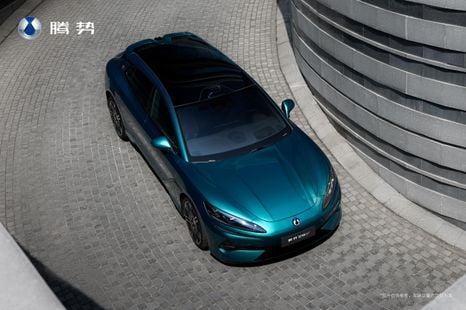

William Stopford
11 Hours Ago
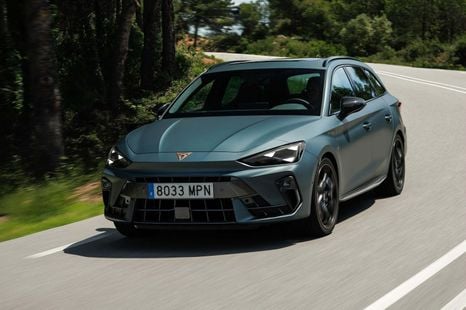

William Stopford
12 Hours Ago


Damion Smy
14 Hours Ago


Damion Smy
16 Hours Ago
Add CarExpert as a Preferred Source on Google so your search results prioritise writing by actual experts, not AI.